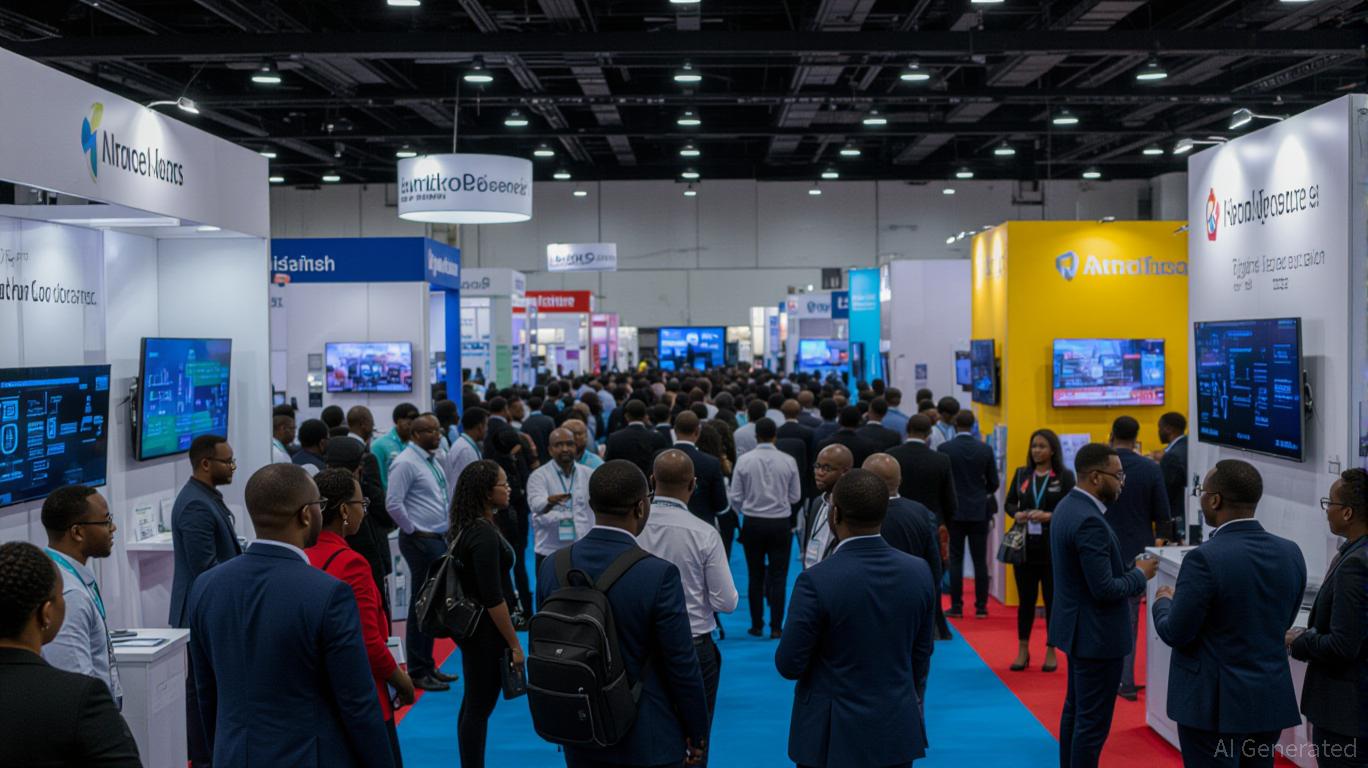
Nigeria’s digital economy is no longer a nascent experiment but a cornerstone of its $1 trillion 2030 vision. With a population of over 223 million and a teledensity of 101.16%, the country’s digital infrastructure is rapidly evolving, driven by government policy, private-sector innovation, and international collaboration. At the heart of this transformation lies a dual focus: AI infrastructure development and scaling the startup ecosystem. For investors, these pillars represent not just strategic alignment with Nigeria’s economic goals but also a high-impact frontier for returns in Africa’s largest economy.
The AI Infrastructure Play: From Consumers to Producers
Nigeria’s ambition to transition from a passive consumer of AI to a global producer of solutions is gaining momentum. The National Artificial Intelligence Strategy (NAIS), launched in August 2024, outlines a roadmap to integrate AI into sectors like agriculture, healthcare, and education. This strategy is underpinned by infrastructure projects such as the 774 Local Government Areas (LGAs) Connectivity initiative and the Fiber Forward program, which aim to expand fiber optic networks to 90,000 kilometers by 2030.
Investors should note the growing partnerships between Nigerian institutions and global tech giants. For instance, Microsoft’s $5 million commitment to train 5 million Nigerian youth in cloud and AI skills, and AWS’s collaboration with local universities to build AI research hubs, signal a shift toward localized innovation. These efforts are not just about capacity-building—they are about creating a pipeline of AI talent that can compete globally.
The Startup Ecosystem: Lagos as Africa’s Silicon Savannah
Lagos has emerged as a hub for digital entrepreneurship, hosting 23 of Nigeria’s 28 fastest-growing companies. The GITEX NIGERIA Startup Festival, part of the larger GITEX NIGERIA event in September 2025, will spotlight startups solving macroeconomic challenges—from fintech platforms expanding financial inclusion to agritech solutions boosting agricultural productivity.
The 3 Million Tech Talent (3MTT) program, which has already trained 30,000 Nigerians in technical skills, is a critical enabler for this ecosystem. By 2025, the program aims to create a workforce capable of driving innovation in AI, cybersecurity, and IoT. For investors, this means a fertile ground for early-stage ventures with scalable potential.
The United Nations Development Programme (UNDP)‘s timbuktoo initiative further amplifies this opportunity by connecting Nigerian startups with global capital. With $163 million in internet users and a broadband penetration rate of 43.5%, the market’s size and connectivity make it an attractive sandbox for tech-driven solutions.
GITEX NIGERIA: A Catalyst for Global Collaboration
Scheduled for 1–4 September 2025 in Abuja and Lagos, GITEX NIGERIA is more than a tech expo—it’s a strategic lever for Nigeria’s $1 trillion vision. The event will feature the Government Leadership & AI Summit, where policymakers and tech leaders will discuss ethical AI frameworks, and the Future Economy Conference, which will explore how digital infrastructure can accelerate GDP growth.
For investors, GITEX NIGERIA offers a unique window into Nigeria’s digital renaissance. The event’s focus on AI scalability, digital sovereignty, and public-private partnerships aligns with global trends in tech investment. Notably, the EU’s €820 million Digital Economy Package and Japan’s JICA training programs highlight the international confidence in Nigeria’s digital trajectory.
Strategic Investment Opportunities
- AI Infrastructure Providers: Companies like AWS, Microsoft, and Huawei are deeply embedded in Nigeria’s digital ecosystem. Their stock performance and R&D investments in AI and cloud computing make them attractive for long-term exposure.
- Local Startups: Early-stage ventures in fintech (e.g., Flutterwave, Paystack), agritech (e.g., Farmcrowdy, AgroCenta), and healthtech (e.g., mPharma, Helium Health) are poised to scale as Nigeria’s digital economy matures.
- Digital Infrastructure Funds: The Fiber Forward initiative and 5G deployment by MTN and Globacom present opportunities in telecom infrastructure, supported by government incentives.
The Road Ahead: Risks and Rewards
While Nigeria’s digital economy is on a strong growth trajectory, challenges remain. Regulatory clarity, cybersecurity risks, and energy infrastructure gaps could slow progress. However, the government’s Renewed Hope Agenda—which includes fiscal reforms and public spending on human capital—addresses these head-on.
For investors, the key is to balance patience with urgency. Nigeria’s 2030 timeline creates a sense of urgency, but the market’s size and innovation potential justify a long-term horizon.
Conclusion: A $1 Trillion Bet on Digital Africa
Nigeria’s digital economy is a microcosm of Africa’s broader transformation. By investing in AI infrastructure and startup ecosystems, global capital can not only support Nigeria’s $1 trillion vision but also tap into a market with exponential growth potential. GITEX NIGERIA 2025 is a pivotal milestone—marking the moment when Nigeria’s digital ambitions meet global investment.
For those who act now, the rewards could be as transformative as the technologies themselves.



